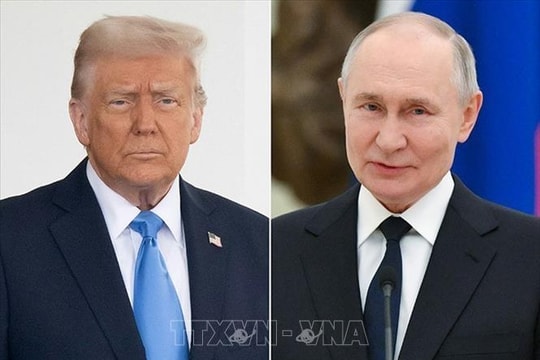President Putin's re-election "weapon" before G-hour
Running as an independent candidate after three terms in office, Vladimir Putin is considered the number one candidate for the Russian presidency ahead of the election on March 18.
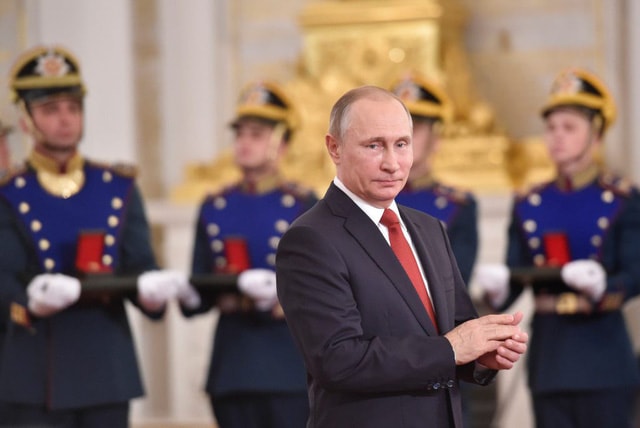
President Vladimir Putin. Photo: PBS
Putin's party
This year, President Putin ran as an independent candidate and did not belong to any Russian party. However, he still received “tacit” support from the United Russia party, chaired by former President Dmitry Medvedev. United Russia is also the political party with the largest number of seats in the Russian Duma (lower house).
Political platform
Mr. Putin served as President of Russia for 14 years and as Prime Minister of Russia for 4 years. Before entering politics, he was a spy for the Soviet Security Service (KGB) and spent many years working as an intelligence officer in Dresden, former East Germany.
By 1991, Mr. Putin was active in the pro-democracy movement in Leningrad (now St. Petersburg). Mr. Putin spent half a decade working as an assistant to Anatoly Sobchak, the first democratically elected mayor of St. Petersburg.
After Mr. Sobchak failed in his bid for re-election in 1996, Mr. Putin moved to Moscow and became Deputy Chief of Staff under President Boris Yeltsin. Just a few years later, Mr. Putin became President Yeltsin's successor.
Political experience
Having led Russia for many years, President Putin is a leader with a lot of political experience. When he first took office, Putin inherited a Russia with many difficulties. At that time in 1998, Russia was still an international "debtor" while the conflict in Chechnya broke out.
Putin quickly ended the Chechen war and revived the Russian economy, benefiting from rising resource prices, especially oil and gas. He also reasserted state control over key sectors of the country.
During his second presidential term (2004-2008), Mr. Putin focused on consolidating the system, while supporting Mr. Medvedev to replace him in the next leadership term because the Russian constitution stipulates that each president can only hold power for a maximum of two terms.
After 4 years as prime minister, his third term as president, Mr. Putin's approval rating skyrocketed. During this period, Mr. Putin also affirmed Russia's foreign policy despite the economic difficulties. One of the most resounding events during President Putin's term was the decision to annex the Crimean peninsula into Russian territory in 2014. However, since then, Moscow has had to endure a series of sanctions from countries in the North Atlantic Treaty Organization (NATO).
Ideology
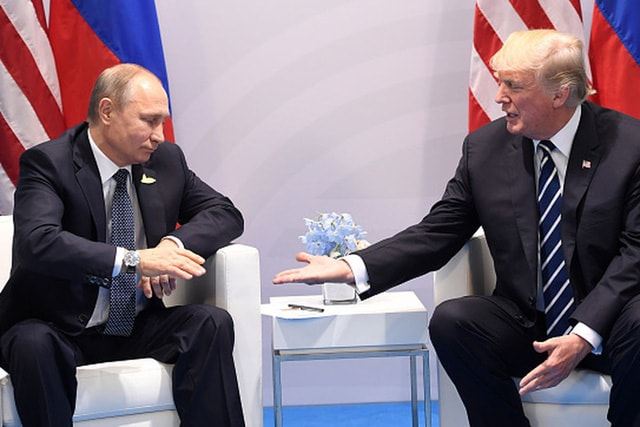
President Putin and US President Donald Trump held talks in Germany in 2017. Photo: AFP
Putin’s ideology is said to be complex, but can be described as a “Russia First” stance. When he first came to power, President Putin was pro-Western and sought to build good relations with Europe and the United States. This was the reason why he supported the United States after the terrorist attacks of September 11, 2001, as well as in the subsequent war in Afghanistan. However, Putin later strongly opposed the decision of former US President George W. Bush and former British Prime Minister Tony Blair to go to war in Iraq.
As NATO’s influence moved closer to Russia’s borders, President Putin’s stance hardened. In recent years, his views have focused largely on the issue of national sovereignty. This has led Russia to move closer to China and away from its former G8 partners.
In person, Mr. Putin is still considered a fairly liberal leader by Russian standards, despite the West’s tendency to portray him otherwise. In addition to Christianity, Mr. Putin has maintained friendly views toward Jewish and Muslim communities, as well as other ethnic groups.
Policy
Last week, President Putin used his own state-of-the-nation address to outline the policies of his fourth presidential term ahead of Russia's election. He called for investment in technology and pledged to halve Russia's poverty rate within six years. He also promised hundreds of billions of dollars in new infrastructure projects.
President Putin also aims to make Russia surpass Germany and become the world's fifth largest economy. Russia is currently ranked sixth in terms of purchasing power parity (PPP). Another ambitious policy of Mr. Putin is to extend the average life expectancy of its people to 80 years, surpassing the United States.
Weaknesses
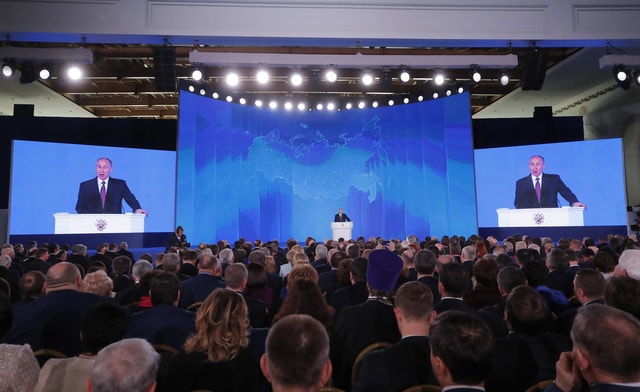
President Putin delivers his federal address ahead of the Russian election. Photo: Reuters
President Putin has refused to take part in televised debates with other Russian election candidates, which would theoretically give his opponents a chance to reach voters more directly and make it easier to turn out.
In addition, a number of other factors are believed to affect Mr. Putin's chances of winning the election, including the desire for a new face in Russian politics after Mr. Putin's long term in power and allegations of corruption in Mr. Putin's cabinet. In addition, the stagnation in living standards of Russian people in recent years has also affected President Putin's credibility. However, the return of economic growth in recent times has eased the concerns of the Russian people.
Support rate
Recent polls show that Mr. Putin is overwhelmingly in the lead with 67-70% of voters supporting him. This is considered a huge advantage for the current Russian President before the vote takes place on March 18.

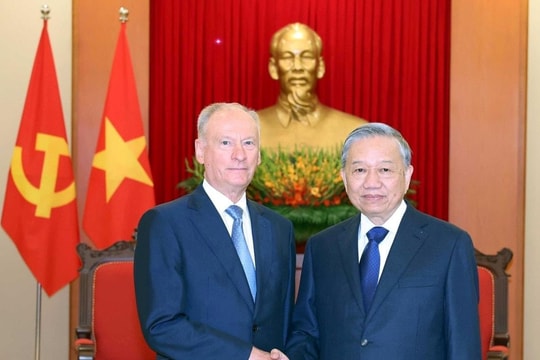
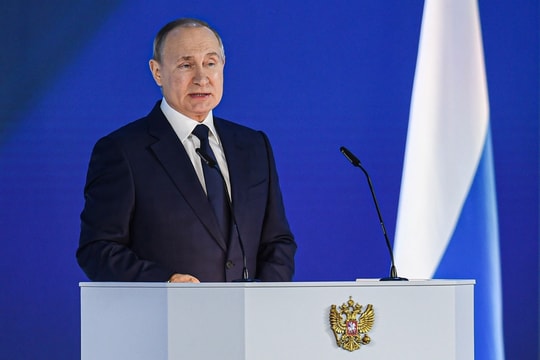

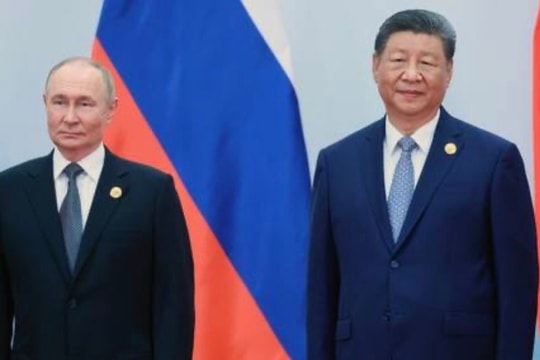
.jpg)
